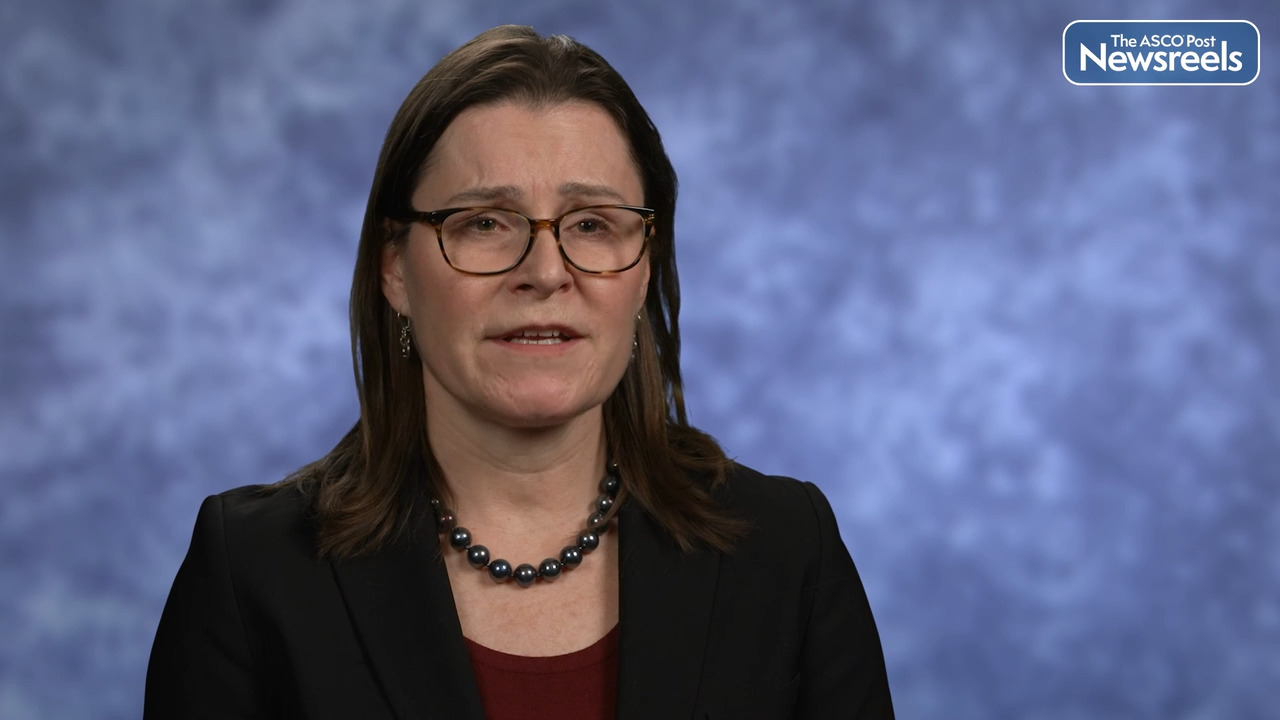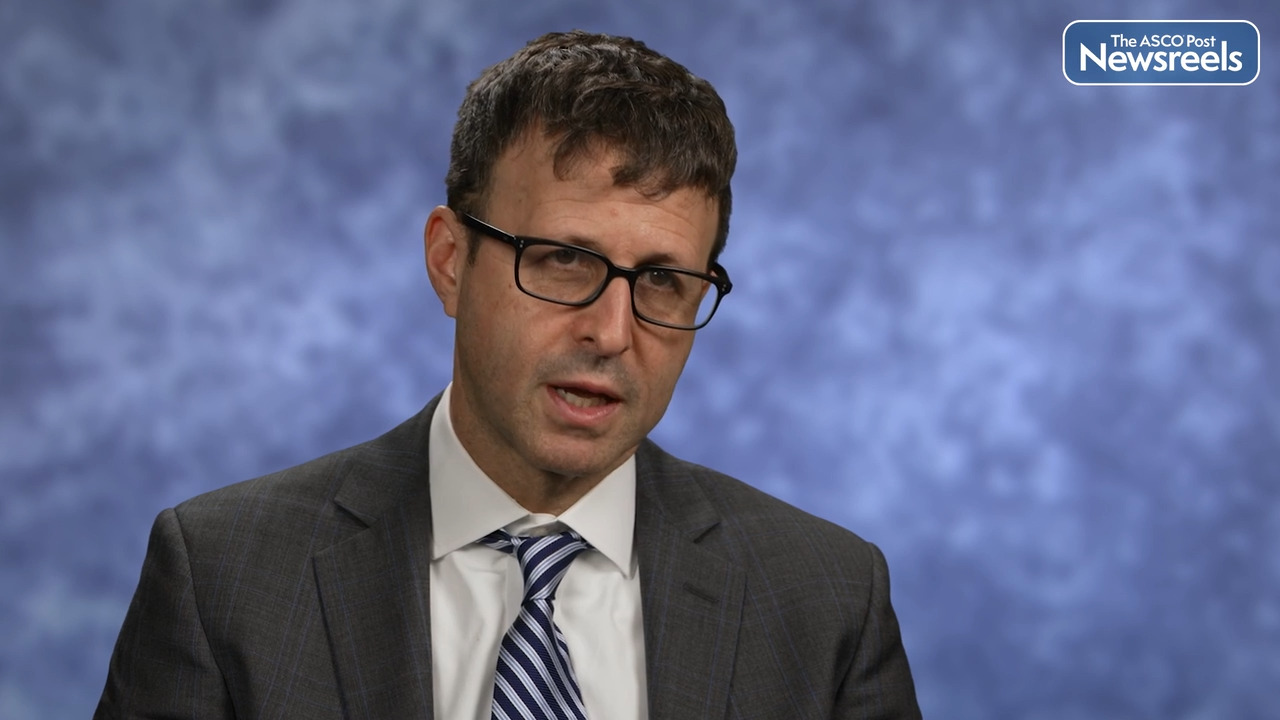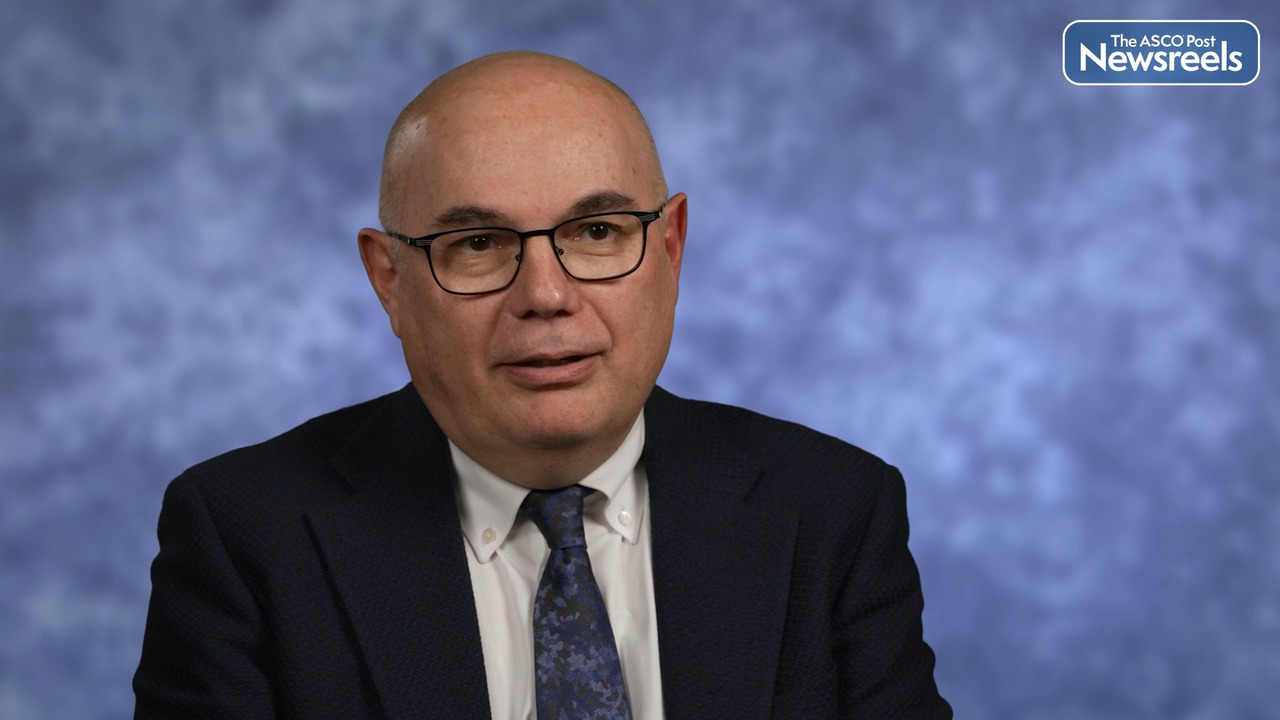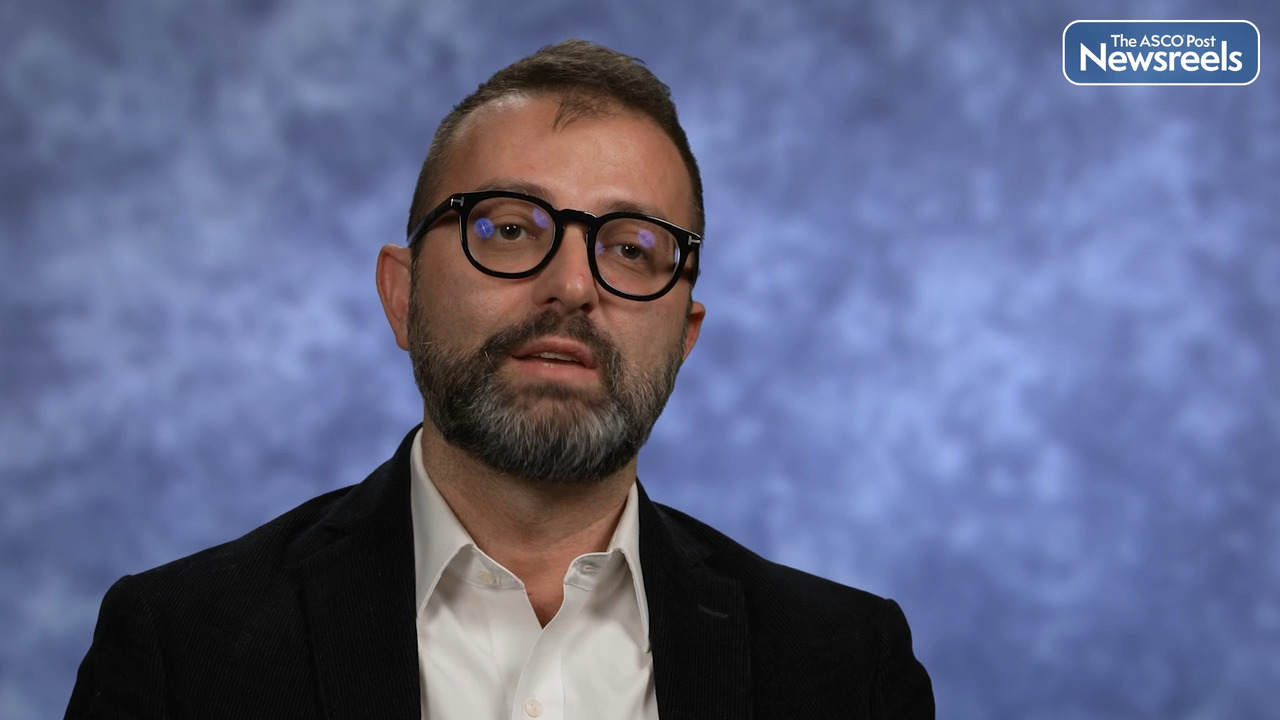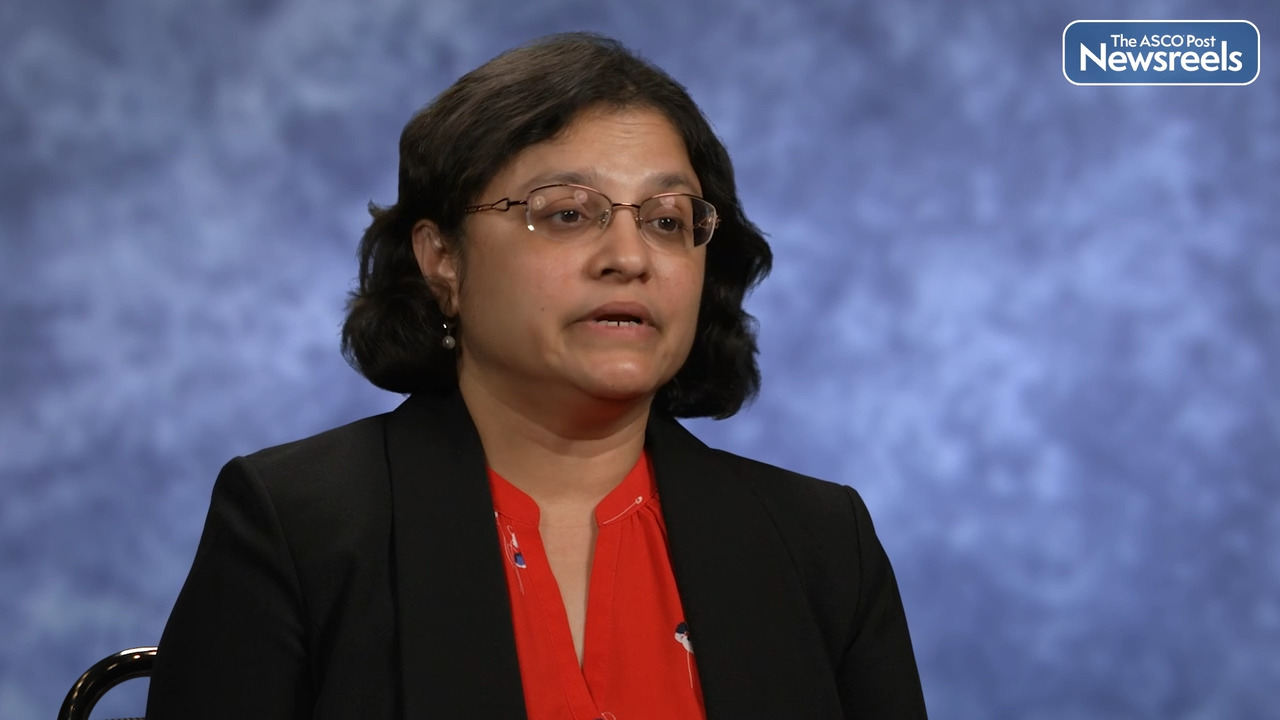Transcript
Disclaimer: This video transcript has not been proofread or edited and may contain errors.
SWOG 1815 was the first randomized phase three trial in newly diagnosed advanced biliary tract cancers in the United States. It is a study that was designed based on a phase two trial that was initially completed, and with the knowledge that there is a significant need for better therapeutics for newly diagnosed advanced biliary tract cancers. We are seeing more and more of these cancers including extra-hepatic, intra-hepatic cholangiocarcinomas and gallbladder cancer, but currently, Gemcitabine and Cisplatin, even with the addition of immunotherapy, still has a median overall survival of just around 12 months in advanced disease. So we had completed a single-arm phase two study of 60 patients that looked at Gemcitabine, Cisplatin with the addition of NAB-paclitaxel in advanced biliary tract cancer patients, and there we saw some really early promising signs of efficacy with the median overall survival of 19.2 months. So that is what led to the pivotal SWOG 1815 trial, which is a randomized phase three looking at Gemcitabine, Cisplatin and Nab-paclitaxel compared to the standard of care at the time, Gemcitabine and Cisplatin.
This was a study opened through SWOG but opened across the entire NCTN, and so it was truly a herculean effort with accruals across all of the cooperative groups to a total end of 441 patients. Patients were randomized in a 2:1 fashion to the triplet regimen versus the standard of care, and the primary endpoint was overall survival. The study was powered to look for a hazard ratio of 0.7 with an improvement in median overall survival that led to that end of 441 patients. There were some pre-specified stratification factors including disease site, disease stage, and performance status. The study basically showed that the median overall survival with Gemcitabine, Cisplatin, and Nab-paclitaxel was numerically improved at 14 months compared to 12.7 months with Gemcitabine and Cisplatin, but this did not reach statistical significance. Similarly, the median progression-free survival was numerically improved, but also was not statistically significantly different.
The overall response rate was also slightly better with the triplet regimen at 31% versus 22%. And when you look at that broken down by disease site and disease stage, there are some interesting signals that emerge, including a median OS in gallbladder cancer that trends towards better survival and a overall response rate in gallbladder cancer that is double from 22% to 44% with Gem, Cis, Nab-paclitaxel. Similarly, locally advanced patients seem to have a better median OS than the metastatic patients, but again, the numbers were small so it was hard to really detect statistically significant differences there. When we look at the Grade 3-4 toxicities, the triplet regimen, not surprisingly, had more hematologic toxicities, primarily anemia, neutropenia, and thrombocytopenia. And while these were more so in the triplet regimen, the treatment discontinuation rate between the two arms did not vary significantly.
In summary, it really shows that Gemcitabine and Cisplatin with Nab-paclitaxel did not improve overall survival, but there may be some worthwhile exploratory analysis in further investigation that should be done to look at potential subsets including locally advanced patients and/or gallbladder cancer. We also have ongoing biomarker analyses going right now to really see if there are other subsets within molecular profiles of patients that could benefit from the triplet regimen.
